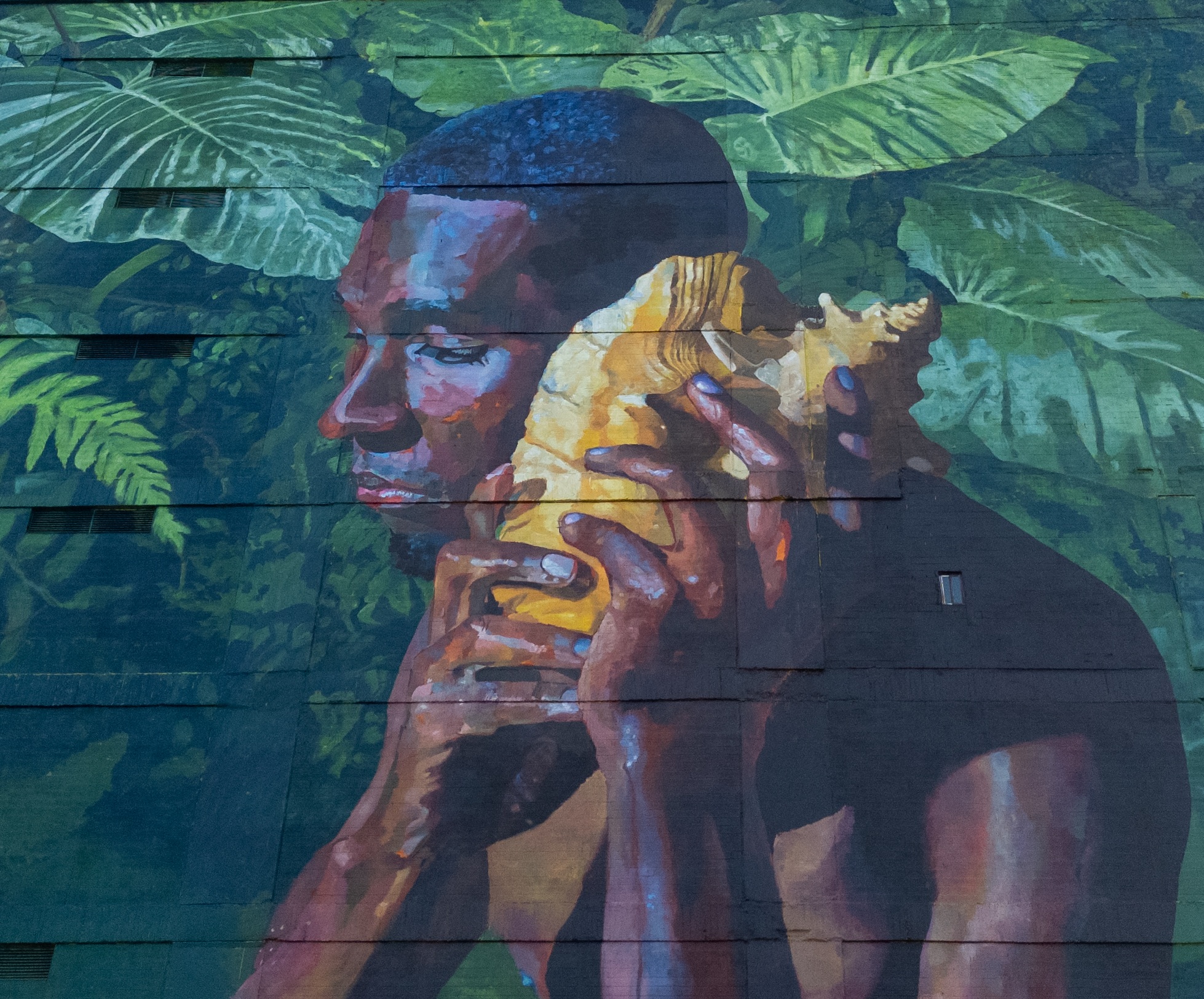Explore Issues
- Arts and Culture
- Decolonizing Thought
- Environmental Justice
- Health
- Languages and Education
- Science
- Social and Gender Justice
- Uncategorized
Filter by Country
-

Medellín Is Also Black
Colombia, 2026. Medellín is a place that has inspired songs such as “Me voy para Medellín” by El Combo de las Estrellas, “Medellín” by Madonna, and even “Medallo City” by Maluma, all of which praise its natural beauty, culture, and nightlife. However, the fantasy conveyed by the international music industry disappears just a few streets…
-

Medellín Is Also Black
Colombia, 2026. Medellín is a place that has inspired songs such as “Me voy para Medellín” by El Combo de las Estrellas, “Medellín” by Madonna, and even “Medallo City” by Maluma, all of which praise its natural beauty, culture, and nightlife. However, the fantasy conveyed by the international music industry disappears just a few streets…
-

Times of Life and Death: Building Resilience Through Historical Memory in Colombia
On November 18 the National Indigenous Organization of Colombia (ONIC) together with the National Center for Historical Memory (CNMH) released a report on historical memory on structural violence against indigenous peoples, a project that began in 2017. Below we provide a translation from ONIC´s website on the significance of such report in their future struggles…
-

Indigenous People Will Not Be Erased
NATIVE AMERICAN HERITAGE MONTH Some may call the celebration of Native American Heritage Month merely a symbolic gesture. But symbols and the movements behind them matter. BY CRYSTAL ECHO HAWK, NICK TILSEN – NOVEMBER 8, 2019, Originally published by NDN Collective For nearly three decades, the month of November has been recognized as Native American…
-

Bolivia: They Want to Shut Us Up Again with Guns and “the Word of God”
EDITORIAL NOTE: The situation in Boliva is immensely complicated and cannot be reduced to a simple “imperialist coup d’etat.” Undoubtedly, the mandate of Evo Morales, set to end on January 20, 2020, was prematurely interrupted, who was forced to resign along with his entire cabinet (vice president, presidents of Congress and yesterday, Minister of Defense)…
-

Women’s Alliance repudiates violence and calls for demonstrations against hate and racism
FUENTE: Publicado Originalmente en APC Bolivia (ABI) The Alliance of Women’s Social Organizations for the Democratic and Cultural Revolution (Alianza de Organizaciones Sociales de Mujeres por la Revolución Democrática y Cultural) repudiated Friday the acts of violence that occurred in recent days in the country, by the opposition that rejects the results of the general…
-

Bolivia, The Disaster Solution
Awasqa has the honor of sharing an article by a Bolivian writer, philosopher and director of the Bolivian Decolonization Workshop, Rafael Bautista, author of the book El tablero del siglo XXI. Geopolítica des-colonial de un orden global post-occidental (The gameboard of the 21st century. De-colonial geopolitics of a post-Western global order).Some clarifying points. First, it was…
-

Historic march of the Mapuche Nation in Temuco, Chile
SOURCE: Periódico Fewla (independent Mapuche community newspaper), translated to English by Awasqa. Photos and video: Radio Kvrruf The call for action represents the support of the Lof [community leaders] and communities in resistance, and of the different Mapuche organizations, to the process of mobilization of the Chilean society that seeks for equity and justice. The…
-

K-luumil X’Ko’ olelo’ob: Land of Women
Interview with Alika Santiago Trejo, October 18, 2019 I think the important thing, how we look at each other now, is to understand that our collective of indigenous women is, in itself, a necessary political action, an organization born from us, with autonomy and independence of thought. What is the K-luumil X’Ko ’olelo’ob Collective? Our…
-

The Khĩsêtjê People in Brazil: Dance, Celebration and Resistance
In Wawi Indigenous Land (MT), Khĩsêtjê sing and dance until dawn to celebrate 20 years of their traditional territory retaking. Published originally on their blog by Instituto Socioambiental (ISA). Author: Isabel Harari, journalist. Photos: Christian Braga / ISA; Videos: Kamikia Kisedje y Fred Mauro / ISA. The Instituto Socieambiental is an organization that was established…